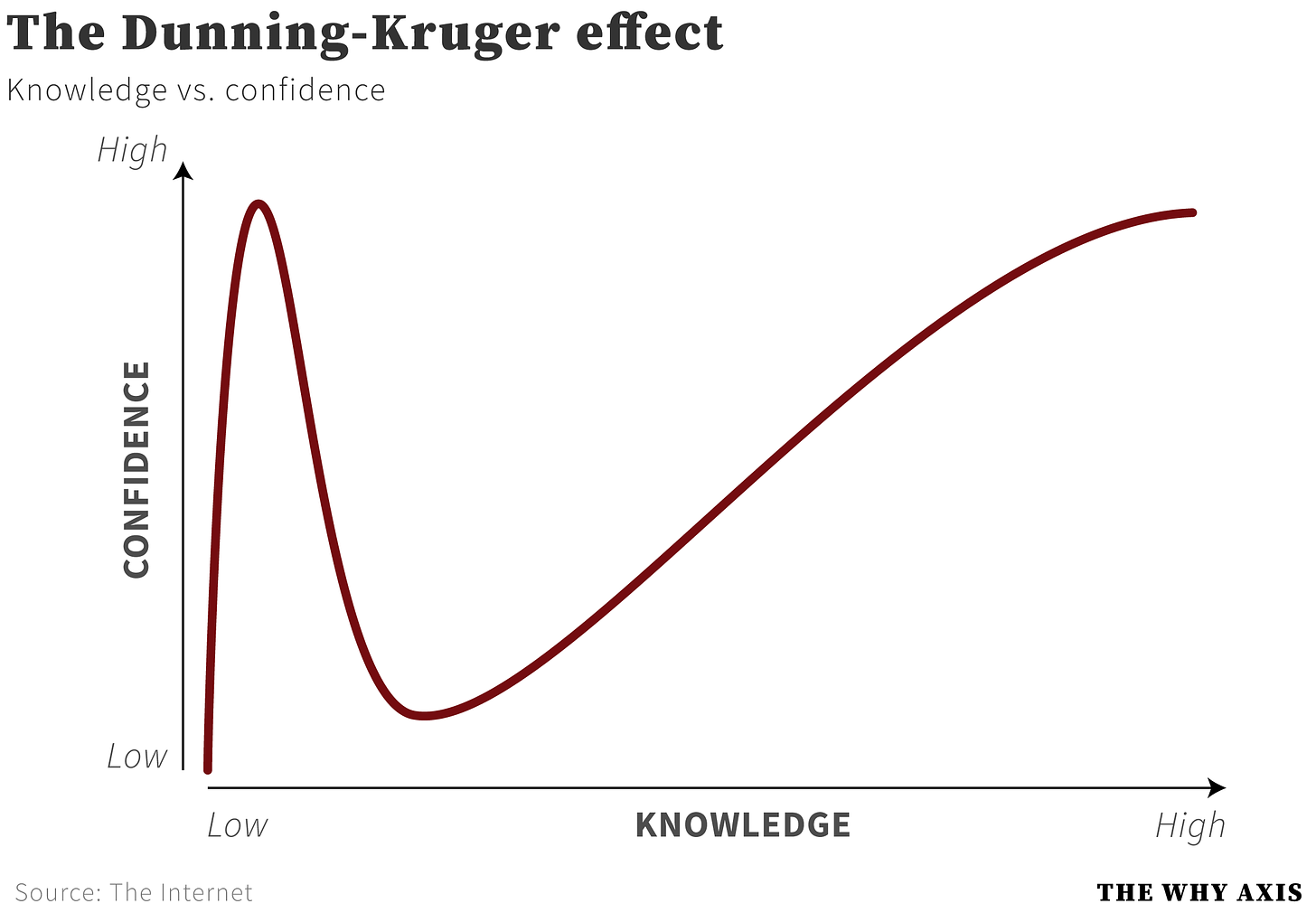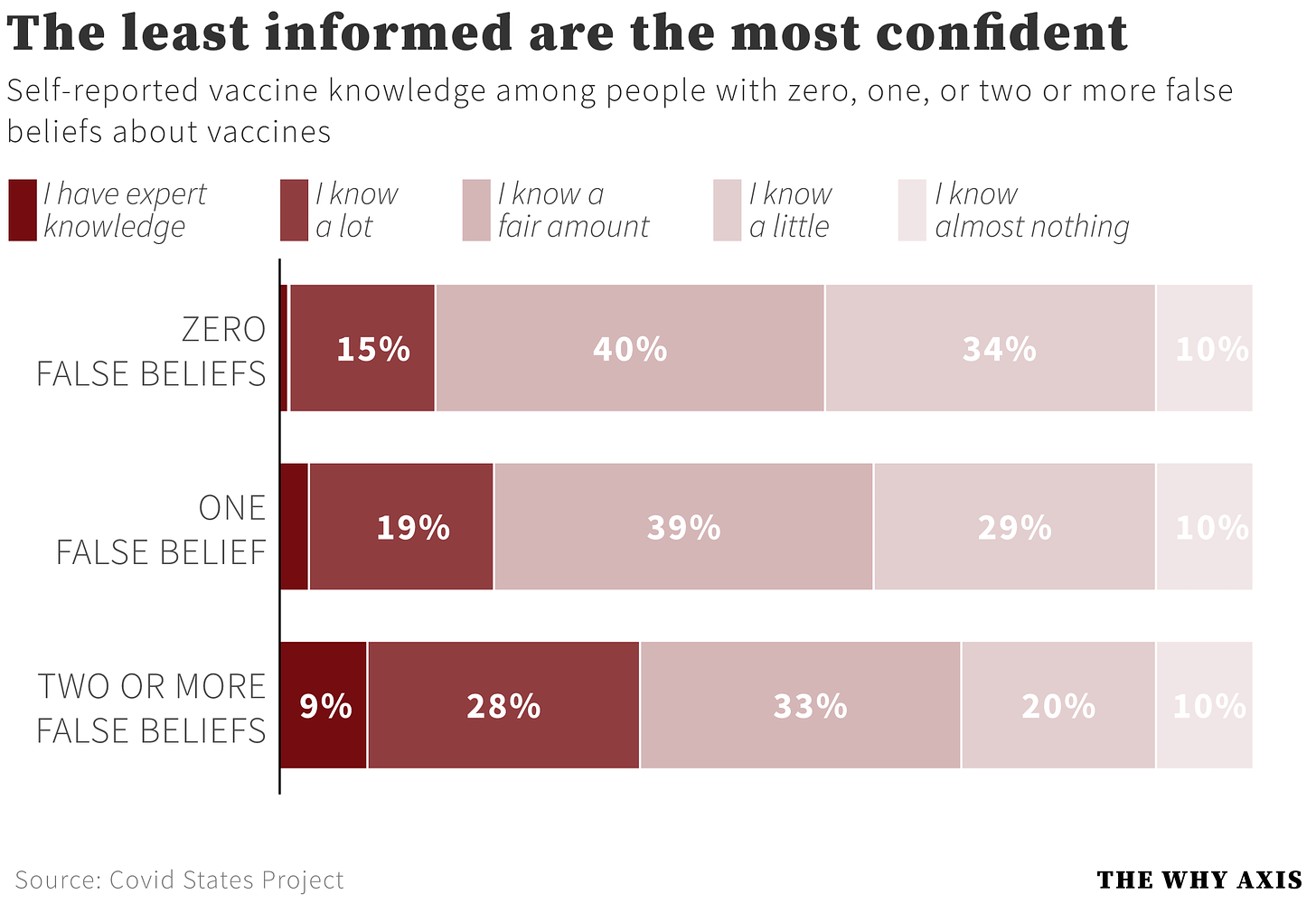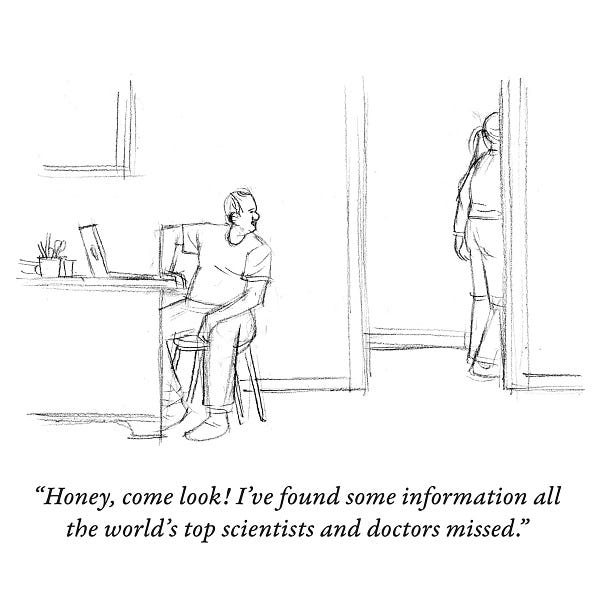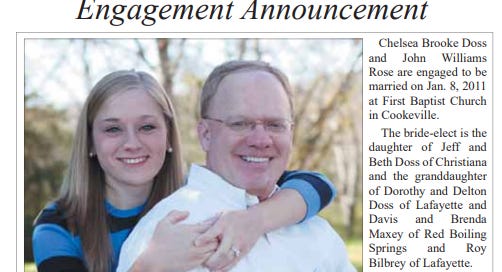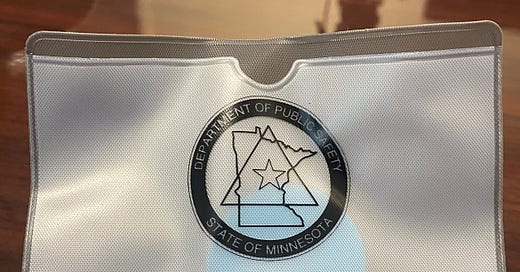
You’ve probably heard of the Dunning-Kruger effect, a cognitive bias where people who don’t know much about a given topic think they’re actually really knowledgeable. It’s kind of a “loud idiot” syndrome and you see it a lot in guys like Donald Trump — confidently spouting off nonsense while seemingly unaware of how dumb they sound.
Because we’re all about the charts here at The Why Axis, here’s a conceptual illustration of it, versions of which have been floating around the internet forever.
See that peak on the left-hand side of the chart, where knowledge is low but confidence is high? That’s colloquially known as “Mt. Stupid.” And in the pandemic era, a lot of folks have climbed up that mountain and planted their flags there. Think, for instance, of the “do your own research” crowd, who watch 37 YouTube videos and walk away convinced that the Covid vaccines contain microchips, or alter your DNA, or that they contain lung tissue of aborted fetuses or that they make you infertile.
Those beliefs were the subject of recent research from the Covid States Project, an academic consortium tracking Covid-related public opinion over time. They found that about 16 percent, or roughly 1-in-6 Americans believe in at least one of those false notions, with close to half reporting uncertainty about at least one of them. The single biggest predictor, by far, of belief in vaccine misinformation? Identifying as a Republican, reflecting the widespread misinformation and conspiracy theorizing about Covid on the right.
Those false beliefs are also driving vaccine denial in the U.S. About 80% of survey respondents who hold none of those beliefs report being vaccinated. But among those who believe in two or more of those statements, the vaccination rate is just 32 percent.
None of this is particularly surprising if you’ve been paying attention to the Covid discourse in the U.S. But the pollsters also did something really interesting: they asked respondents to assess their own knowledge about vaccines on a five-point scale from “I know almost nothing” to “I have expert knowledge.” And there a distinct pattern emerged: the people who were the least informed about vaccines had the most confidence. I don’t think I’ve ever seen a clearer illustration of the Dunning-Kruger effect in the wild.
People with two or more misperceptions, for instance, were more than twice as likely to say “I know a lot” or claim “expert” knowledge than those with no false beliefs. They were also a whopping 9 times as likely as those with with no misperceptions to rate themselves as vaccine “experts.”
The amount of overconfidence is simply staggering, a reflection of what conservative commentator Tom Nichols calls the death of expertise: a combination of highly motivated reasoning and a declining lack of trust in experts.
The survey also finds that many people believe vaccine misinformation even when they know that it goes against the scientific consensus. About 6 percent, for instance, believed in one of the four vaccine conspiracy theories but said that scientists and health experts would consider it false. It’s a literal manifestation of this New Yorker cartoon:
There have always been overconfident idiots in the world, of course. The tricky thing right now is that one of our two major political parties is being led by one, and is working to cast overconfident idiocy as a positive social value. The asymmetrical elite endorsement of know-nothingness is something new, at least in the modern era, and it doesn’t bode well for either our national politics or our ability to respond to future pandemics and other disasters.
Correction: An earlier version of the chart in this story misspelled the word “belief.” Which, you know, for a post about overconfidence and stupidity is, uh, it’s something I guess.






